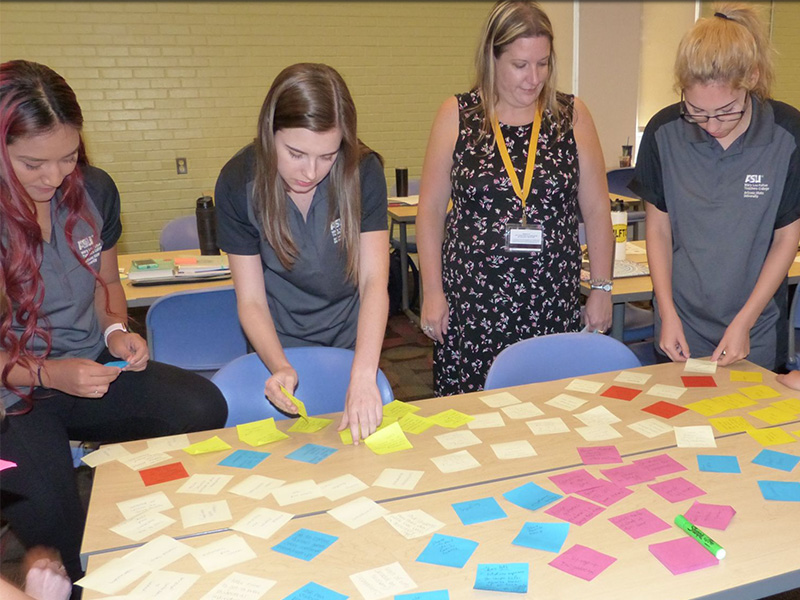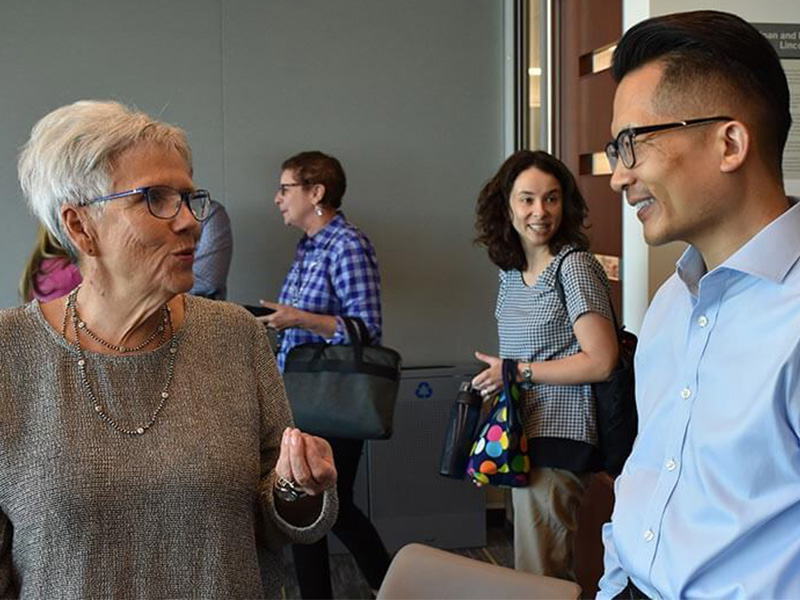PI: An origin story
Developed at the Mary Lou Fulton College for Teaching and Learning Innovation, PI has become a guiding framework for ethical decision-making in innovation across ASU's four campuses.
Principled Innovation (PI) originated at the Mary Lou Fulton College for Teaching and Learning Innovation, where faculty, staff, students, and community partners worked together to develop a framework for values-driven decision-making and ethical innovation. Rooted in the belief that character must be at the center of learning and leadership, PI was initially designed to help educators and school leaders reflect on the impact of their choices while fostering collaboration, creativity, and ethical responsibility.
A key milestone in PI’s development was a generous gift from the Kern Family Foundation in 2017, which provided resources to deepen the research and implementation of PI across educator and leadership preparation programs. Faculty and researchers engaged in peer-reviewed studies to define the core practices of PI, ensuring they were grounded in evidence-based principles of character development and reflective decision-making. This foundational research shaped the eight practices of PI, which became central to how individuals and organizations integrate ethical reflection into their work.

The question, ‘We can innovate, but should we?’ places values and ethical understandings—our own character—at the core of Principled Innovation.
PI Consulting Team, MLFC
As the framework evolved, it became clear that the principles of PI extended beyond education. While originally developed to support teachers, school leaders, and community stakeholders, the same values-driven approach resonated in broader fields, from business and healthcare to technology and public policy. This realization paved the way for PI’s expansion, shifting from a college-specific initiative to a university-wide guiding principle that could shape decision-making across Arizona State University.
In 2023, PI was formally recognized as ASU’s ninth design aspiration, a distinction that elevated its importance and influence. As a design aspiration, PI now informs innovation efforts across disciplines at ASU’s four campuses, and with community partners. It ensures that creativity and problem-solving remain grounded in ethical reflection, collaboration, and long-term impact. The shift from an education-focused initiative to a core institutional value reflects ASU’s commitment to placing character at the heart of innovation, reinforcing the university’s broader mission of public service and societal impact as a New American University.

The journey of Principled Innovation serves as a testament to the power of education as a catalyst for ethical and responsible change. Its origins within MLFC remain a vital part of its identity, underscoring the importance of thoughtful leadership, reflective practice, and a commitment to positive societal transformation. The PI consulting team at MLFC works hard to support PI education and program development for organizations across the university serving hundreds of faculty and staff and thousands of students. As PI continues to evolve, its foundational principles remain unchanged: innovation is not just about what is possible—it is about what is responsible, ethical, and meaningful.
